|
IN THE SPOTLIGHT |
Eastern Partnership Civil Society Forum
|
|
New ENP and Civil Society’s Place in Focus of the 7th EaP CSF Annual Assembly24 November 2015
The 7th EaP CSF Annual Assembly was held in Kyiv on 19-21 November attracting around 300 participants, observers and guests who attended more than 20 sessions and a Networking Fair in the framework of the Assembly. The event was opened by the Commissioner Johannes Hahn, Prime Minister of Ukraine Arseniy Yatseniuk and Steering Committee Member Mikayel Hovhannisyan. Nine resolutions were adopted by the General Assembly as the highest decision-making body of the Forum. This year, the topics of major concern for the EaP CSF were conditions for civil society in Azerbaijan, constitutional reform in Armenia, political situation in Moldova, students’ rights in Belarus, Convention on the Rights of Persons with Disabilities, food safety, climate change, reopening Erasmus+ EaP Youth Window and UK’s participation in the European Convention on Human Rights. At the end of the 3-day event the participants elected the new EaP CSF Steering Committee 2015-2016 with a mandate from civil society of the EaP countries and EU member states to serve as the governing board of the Forum during a one-year term. During the opening ceremony the co-chair Krzysztof Bobiński on behalf of the Steering Committee presented a special award to the Chancellor of Germany Angela Merkel in recognition of her contribution to the European Union’s Eastern Partnership policy. The award was received by the German Ambassador to Ukraine Dr Christof Weil. “Everyone benefits when civil society is strong, proactive and independent. Democratic governments know they are stronger when they listen to you,” said Commissioner Hahn during the opening session, adding that the EU had substantially increased its financial support through the Neighbourhood Civil Society Facility, benefiting more than 200 organisations across the region.
Arseniy Yatsenyuk stressed that the Ukrainian civil society is rather strong: "The role of the civil society is determinant for the activity of the Ukrainian authorities." The Prime Minister emphasized the importance for the civil society to maintain dialogue with the Ukrainian Government. "We need the help of civil society when the Government takes difficult decisions. And I am asking for such help," he said.
The main panel discussion “Eastern Partnership between a Fixed Formula and Menu a
Civil society is seen as key in development of the EaP countries, as well as of AA/DCFTA implementation. The support for civil society is increased to 150 mln EUR for 2014-2017, while DG NEAR is actively looking for ways to channel the support more effectively. Within the existing EU rules, new flexibility should be achieved and the pool of reached CSOs should be broadened. The Civil Society Fellows Programme is the new initiative aiming at coaching young civil society leaders and allowing for networking. Iryna Herashchenko, chair of the Euro integration Committee in the Verkhovna Rada, stressed the challenges of the transposition of the EU legislation in Ukraine, speaking about the work of the Committee. While the EU association and integration process became part of the internal politics and policies, the expertise of the lawmakers needs to be strengthened since the legal structures and terminology need to be harmonised. Situation in
EaP CSF Co-chair Andrei Yahorau commented on the EaP CSF expectations that were not met in the ENP review. His assessment was that the new ENP policy is a compromise among Member States and between the policy towards the Eastern and the Southern Neighbourhood that does not look very ambitious, with the EU aspirations being quite limited. Since the new ENP policy is quite general in its goals and aims, is does not carry any strong message or response to the current challenges. The proclaimed priority of the human rights and democracy did not transform in a clear policy to influence the neighbourhood and to build democracy and stability in the region. Moreover, there is no mentioning of the EU membership perspective for the EaP countries, which provides weak incentive for the countries that have to work hard and implement demanding reforms. He also highlighted that the inclusion of civil society into the policy formulation and decision making process is needed more than further capacity building. EU should leverage inclusion of the civil society as equal partners in these processes.
Richard Youngs from Carnegie Europe praised the new instruments and practices anchored in the new ENP. He stressed the importance of the differentiation principle, including the one at the level of the civil society, in particular in countries where the governments do not fully share EU values. According to him, the link between the EaP and EU civil society should be strengthened, as well as the diplomatic support to the civil society in countries where it is under threat. New flexibility in the policy should be taken advantage of by the civil society. Approaches to facing the Russian propaganda were discussed in a separate session. David Stulik from the EU Delegation emphasised that the efforts to combat propaganda are too late and too little. EEAS East Stratcom TaskForce does not have enough resources and staff. He mentioned that the media in the EU Member States that do not have presence in
During the session on the DCFTA progress and challenges Luc Devigne (DG Trade) and Natalia Hnydiuk (Government Office on EU Integration) discussed the adoption of a great number of regulations in
The Parallel session on security focused on trust building and involving the civil society in the policy. Alexander Vinnikov, the Head of the NATO Liaison Office, gave examples of the involvement of civil society in
A parallel session on the EaP CSF effectiveness also attracted a lot of attention. Jana Kobzova from European Endowment for Democracy (EED) highlighted that there is space and relevance for the EaP CSF in the EaP policy. However, the Forum should move from policy-making to policy-shaping looking at the needs of the civil society on the ground and more effectively communicating them to the EU. The new format of the event included two new types of sessions - stakeholders meeting initiated by Working Groups and by National Platforms – during which CSOs had an exchange with policy makers in various fields. Working Groups’ initiated stakeholders meeting focused on visa liberalization, green economy, harmonisation of digital markets, cooperation in the field of youth and education, and social rights of people with disabilities. National Platforms’ initiated meetings explored EU agreements for Armenia and Belarus, reforms under AA/DCFTA in Georgia, Moldova and Ukraine, as well as prospects for EU-Azerbaijan cooperation. During the Working Groups (WGs) meetings the results of their work in 2015, including the outputs of the re-granting projects, were presented. Moreover, the 2016 priorities of WGs and the Civil Society Forum as a whole were identified. The recommendations developed during the Annual Assembly will be used in EaP CSF advocacy in the coming year. Opening speech of Commissioner Hahn Opening speech of PM Yatsenyuk Opening speech of EaP SCF Steering Committee member M. Hovhannisyan |
Project funded by the European Union
![]()









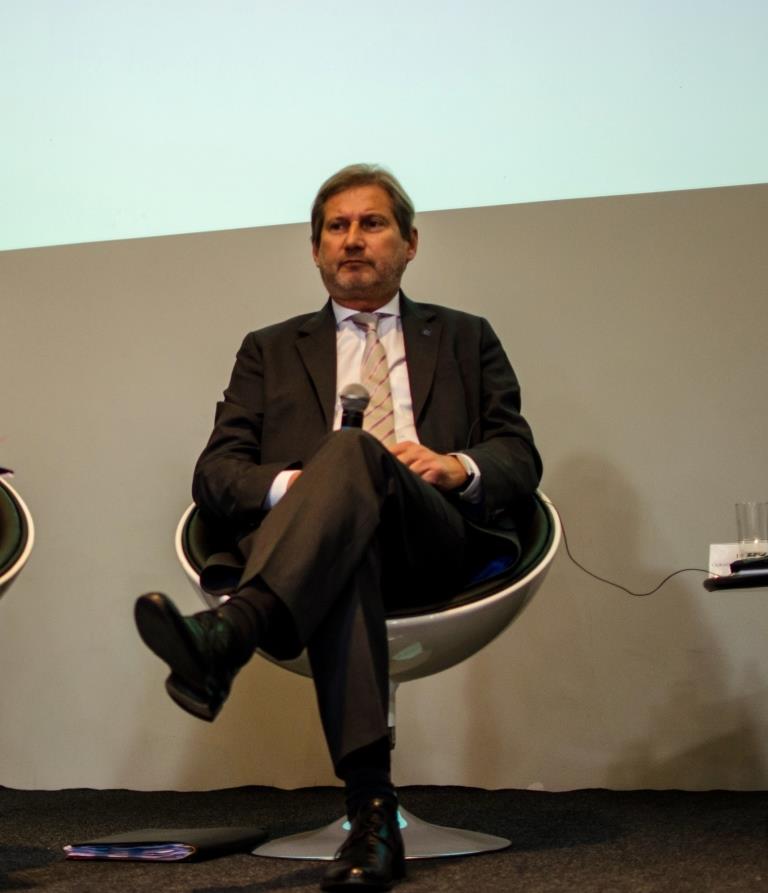
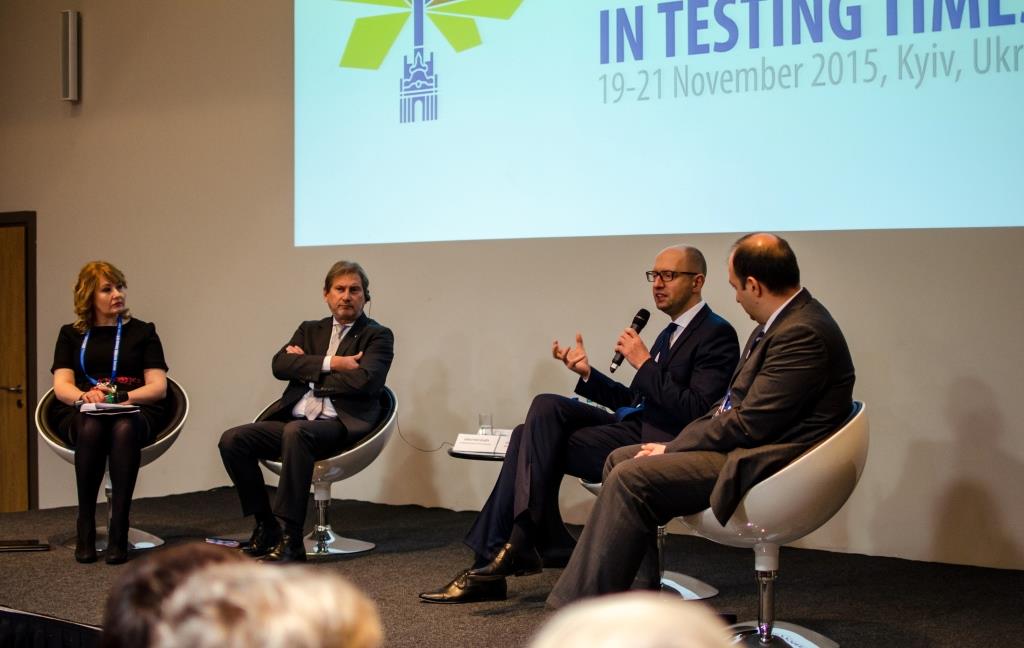
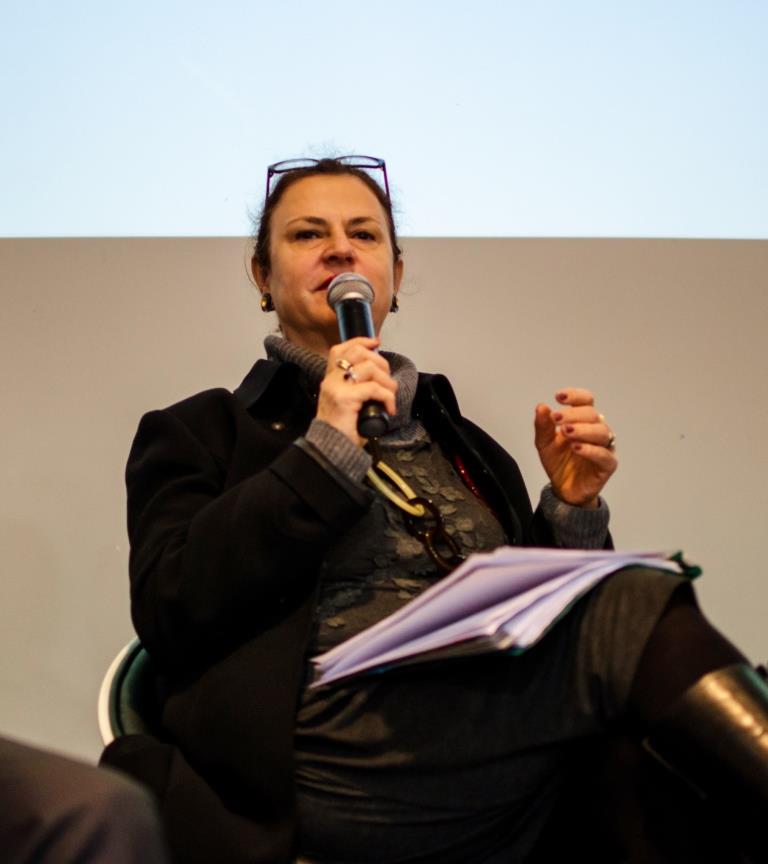
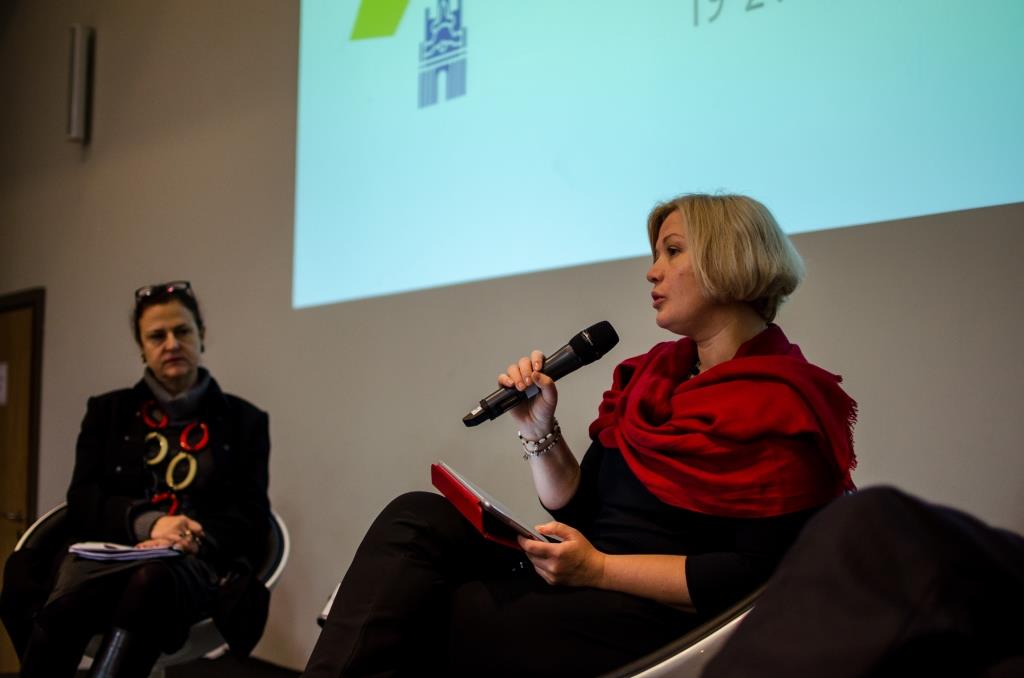
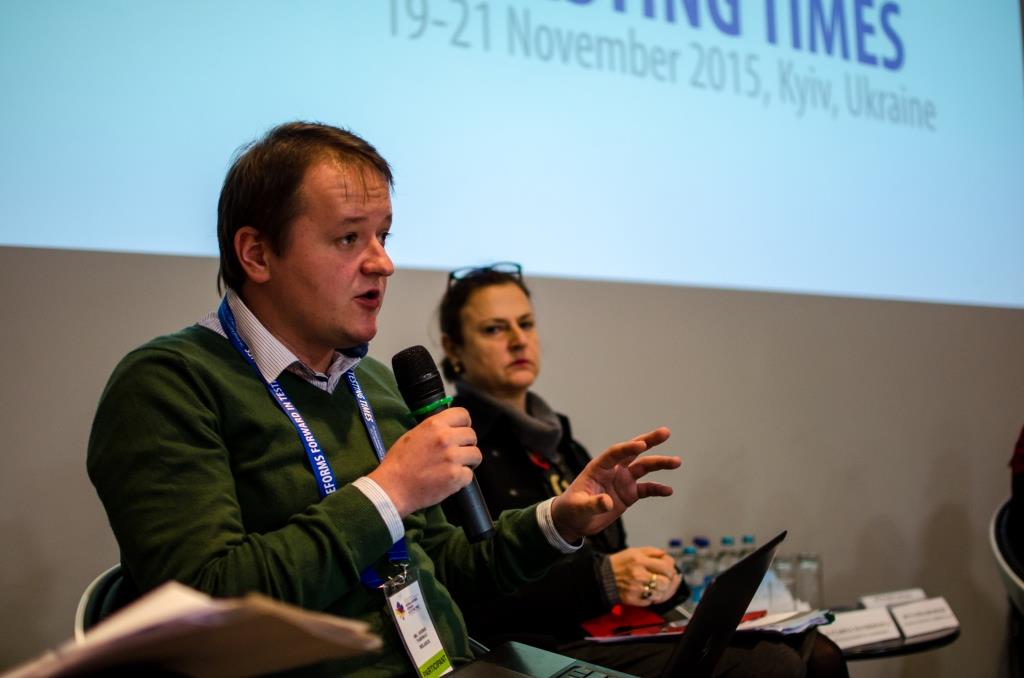
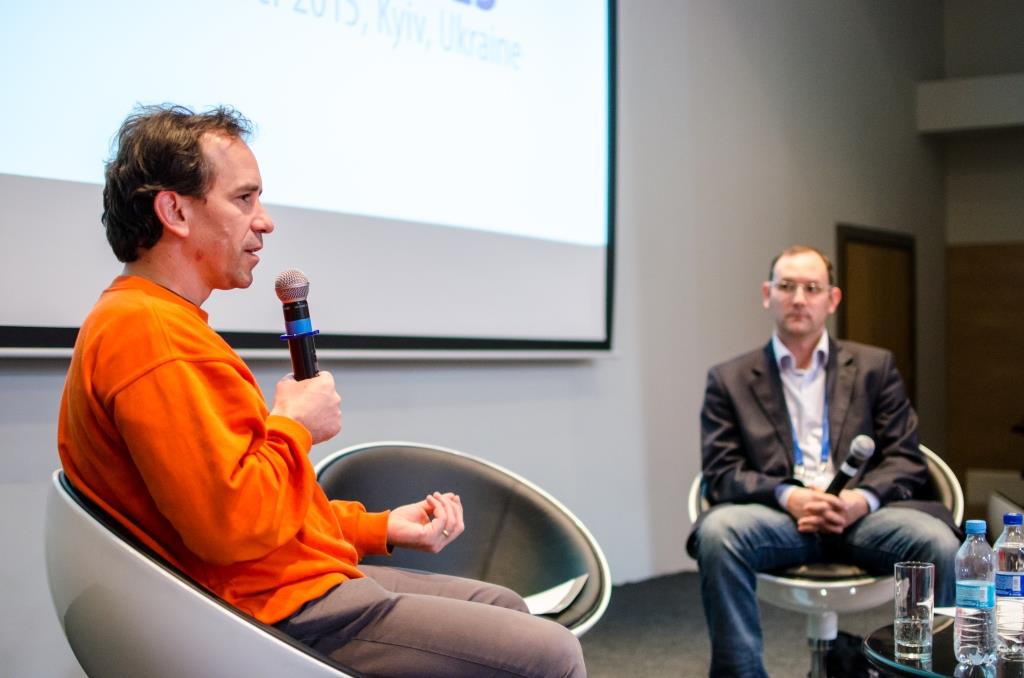
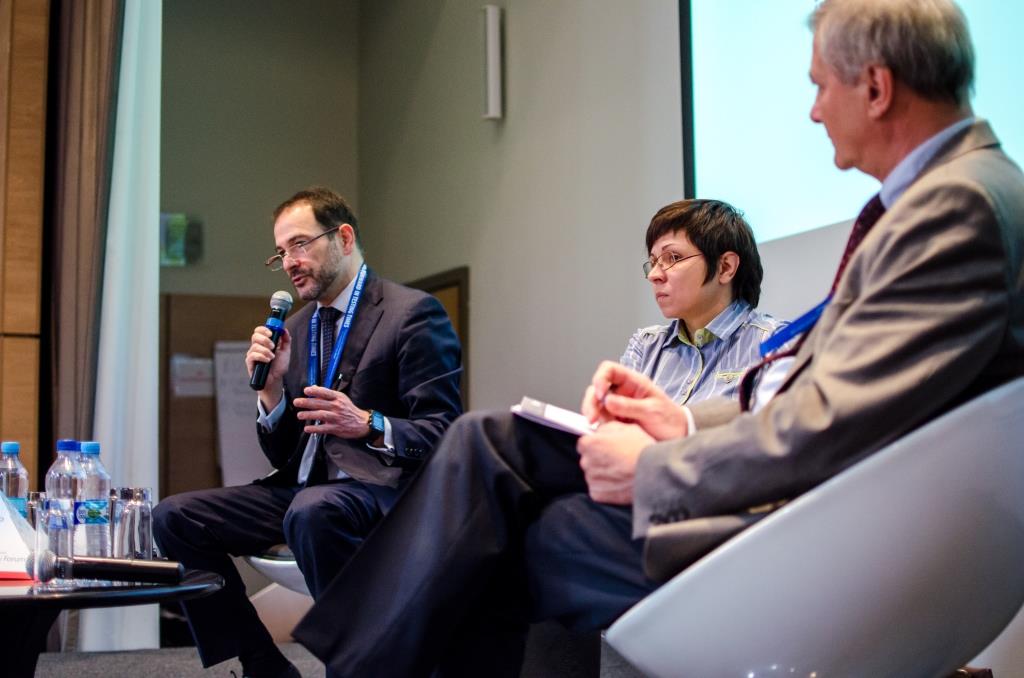
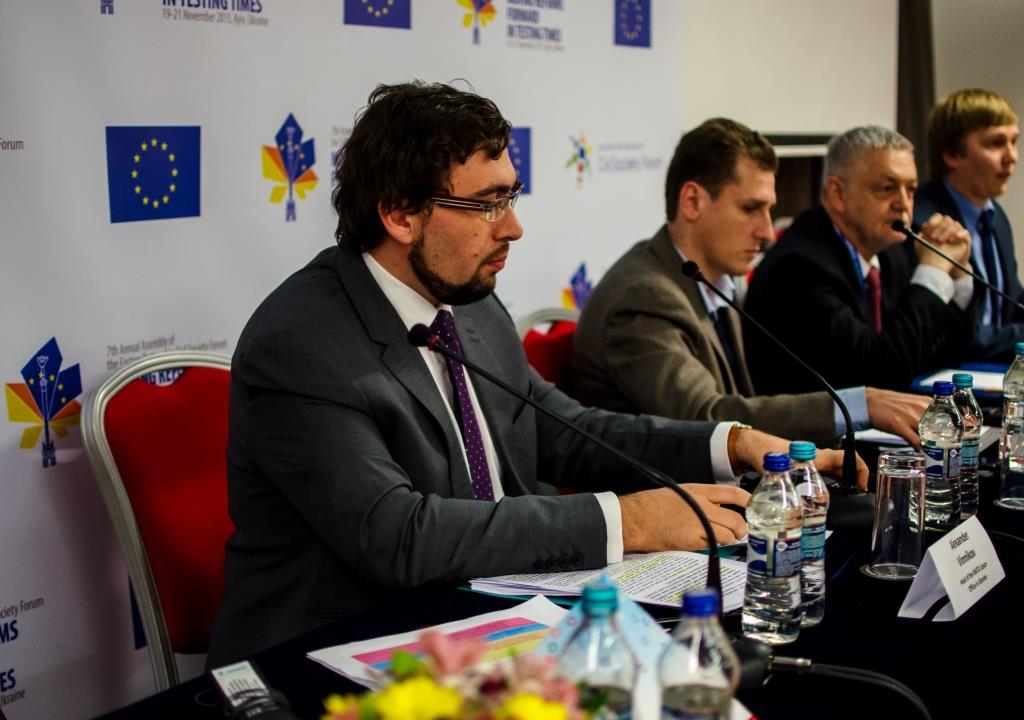
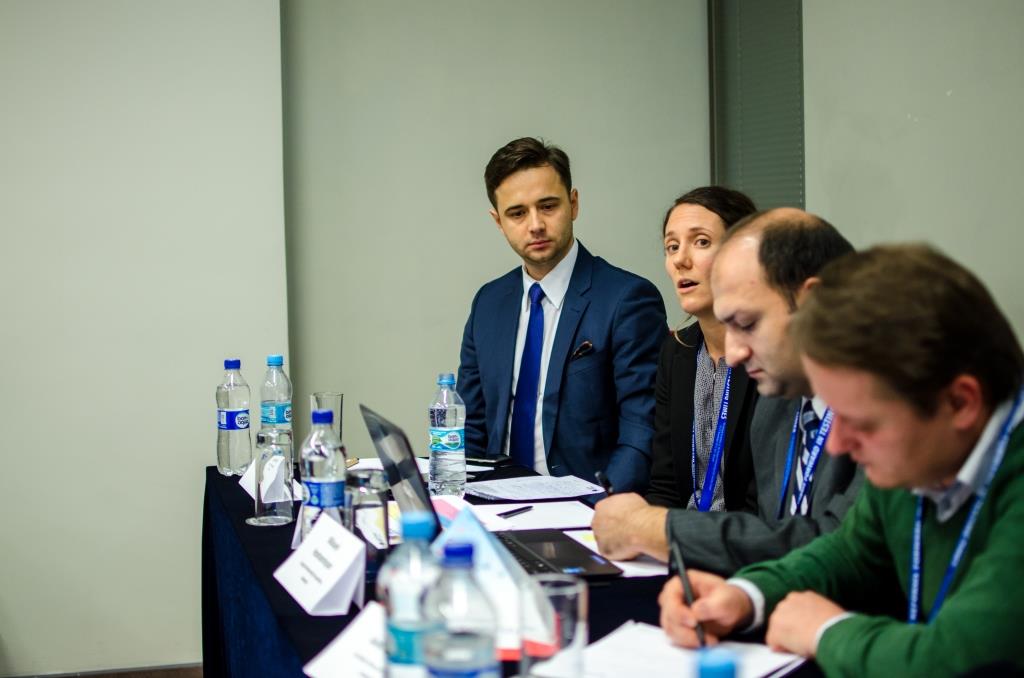 According to Leonid Litra thanks to the Forum the civil society in the EaP has become a real community; the Forum produces a number of very useful publications, including
According to Leonid Litra thanks to the Forum the civil society in the EaP has become a real community; the Forum produces a number of very useful publications, including